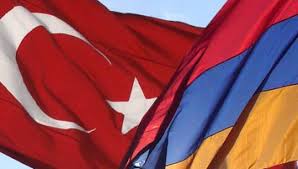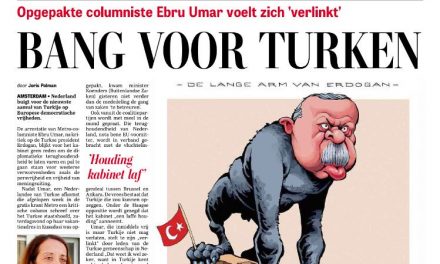By Alper Ali Riza,cyprus-mail.com
WHAT’S in a name? Juliet Capulet asked rhetorically in William Shakespeare’s Romeo and Juliet. If the name is Macedonia and you are Greek, only a country by another name would smell sweet. Most Greeks I know would not countenance use of the name Macedonia by ano ther country. The clash is between geography and history and Greece has both history and geography on her side.
What hurts the Greeks is the dilution of Greece’s historical identity. The Greek case on Macedonia is simple: no state other than Greece has ownership of the history and civilisation of Ancient Greece. This has been at the heart of the problem with the Elgin Marbles housed at the British Museum in London when they should be in the museum beneath the Parthenon, and it lies at the heart of the Macedonian name conundrum.
Macedonia is not merely a geographical area. It is also historically symbolic as an integral part of ancient Greek history and civilisation and consequently the use of the name Macedonia to designate another state is regarded by Greeks as an appropriation of Greek history by that state, quite apart from the fact that the ancient kingdom of Macedon was mostly in present day Greece.
Given the identification of Ancient Greece with the modern state of Greece, historical figures and names associated with Ancient Greece are part of Greece’s national heritage and constitute part of her physical and intellectual heritage which her people regard as priceless.
It is a question of how people feel about themselves as a people which is why the foreign minister of Greece, Nikos Kotzias, put his foot right in it when he said recently that the matter was up for negotiation and all hell broke loose. He should first have engaged the people in serious historical debate about the Macedonian nomenclature problem. After all, if one of the four constituent elements of a nation state in customary international law is a permanent population – territory, government and international capacity being the others – what makes a population permanent is a common history together with a common language, culture and mythology.
The Greek case is not that another state does not have the right to call itself a name appropriate to its geography and history but rather that Greece is entitled to defend her historical identity if, in the exercise of such a right, the other state encroaches on Greek history. As frequently happens in international relations, there are competing claims, but the right of a state to defend her historical identity is fundamental to the notion of statehood.
How Greece defends her historical identity is for her people and government to decide. Obviously, not in the same way as she would if her territorial integrity were under attack. But short of that, by every other means at her disposal.
A way forward is to have a referendum to clear the air. It is precisely the sort of question that lends itself to resolution by referendum because it touches directly on how the Greek people feel, not just for the benefit of the government of Greece but to concentrate the mind of other countries and the international community on the strength of feeling among the people about their history that binds them together as a nation.
For those who regard Ancient Greece as infinitely superior in every way to what followed after it faded, the defence of modern Greece’s historical identity is worth defending absolutely and the Greek people have realised how important this is a lot more than other countries understand or are prepared to concede.
The question is not to do with any irredentist ambitions real or perceived by Skopje. They do not exist and if they did, Greece is militarily well able to defend herself against a smaller and much weaker country. The last time I looked at the constitution of Skopje it expressly disavows any such claims. It says expressly that ‘Macedonia has no territorial pretensions towards the borders of any other state and will not interfere with the sovereign rights of other states or their internal affairs.’
It is purely a question of whether Skopje is claiming Greek history for itself. What happens when one nation state claims the history of another as its own? Is there any intellectual property in a nation’s history? The answer is probably no, although there probably should be some sort of soft law from the UN about the problem as it can cause tensions between countries.
At the heart of the Macedonian question is the huge historical figure of Alexander the Great and his ancestors who were said to stretch back into Greek mythology. He was taught by the philosopher Aristotle and is reputed to have said of Diogenes the cynic that if he were not Alexander he would have liked to be Diogenes. I rather liked that remark when I first came across it. It shows a fine mind in action. A perfect balance between intelligent self-awareness and imagination about someone who was his opposite in every way.
Alexander founded a Greek speaking empire stretching from Greece to Afghanistan and from the Black Sea to Africa taking in modern Turkey, Egypt, Persia and their environs.
He was a great commander. He had the rare gift of being both a great strategist and a master tactician, a very rare gift as every chess master knows. He spread Greek culture and civilisation by conquest in the pursuit of heroism and glory. He married a Persian princess, the lovely Roxane, with whom he had a son Alexander IV of Macedon and like Jesus Christ and Wolfgang Amadeus Mozart he died young in his early thirties.
At least three cities are named after him and thousands of Greeks and others are proud to give their children his name. Alexander is probably the most popular name from Ancient Greece. Aristotle and Pericles are popular names too but not as popular as Alexander. He was a legend in his own time – a great leader who inspired his men by the force of his personality and heroism.
The idea that Alexander was not Greek is preposterous to most Greeks and in light of the Greek nature of the empire he built they are right. I remember once telling my mother – who was Greek and very patriotic about Ancient Greece – that there was some question among historians whether Alexander was fully Greek and she went ape. She said that it was sacrilege to suggest he was not and that those spreading such ugly rumours had an intense dislike of Greeks borne of envy.
The use of a name to denote national identity that grates with the people of a neighbouring countries with a historical attachment to the name is not unique. South Americans resent the use of the term American to denote citizens of the US. So far as they are concerned they are Americans and citizens of US are North Americans. The term America derives from a Florentine explorer and cartographer called Amerigo Vespucci who was more involved with South than North America. But the world thinks of the term American as usually denoting US citizens, to the great annoyance of South and Central Americans.
If you are Turkish and you want to understand how the Greeks feel about Macedonia and why they feel so hurt all you need do is think of the other great Macedonian commander. Kemal Ataturk, who founded Modern Turkey, was born and raised in Salonika – present day Thessaloniki – which is the largest city in Greek Macedonia. When the Ottomans lost Salonika in the Balkan wars all its Turkish population, including Ataturk’s mother, left for Istanbul. Ataturk’s house in Thessaloniki has been restored and is now a museum visited by thousands of secular Turks.
Mustafa Kemal, as he then was, went on to become a great commander and the first president of the Republic of Turkey taking the name Ataturk, which means father of the Turkish nation.
Yet despite his status of founding-father there are some academics and others who claim Ataturk was not Turkish as he was very good looking and had penetrating blue eyes – ergo he could not be Turkish!
When that happens most Turkish people, for whom Ataturk is what Alexander is to the Greeks, feel as bad as the Greeks feel when it is claimed Macedonia and Alexander are not Greek.
Alper Ali Riza is a Queens Counsel and a part time judge.



















